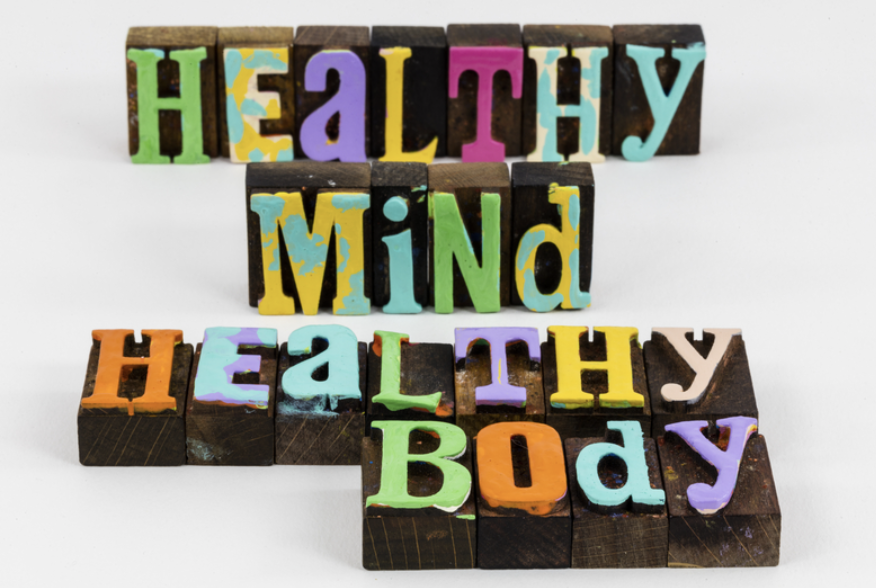
In the realm of holistic wellness, the relationship between mental health and physical health stands as a cornerstone. Traditionally viewed as distinct entities, contemporary understanding recognizes their profound interdependence.
This article delves into the multifaceted connection between the two, exploring how one impacts the other and vice versa.
Effects of Mental Health on Physical Health
Mental health conditions can have profound effects on physical health. Individuals experiencing mental health problems are more susceptible to developing preventable physical health conditions such as heart disease and have an increased risk for other physical symptoms such as headaches, fatigue, and digestive problems. Additionally, mental health conditions can exacerbate the management of chronic illnesses, thus complicating the treatment and recovery process. Sleep disruptions, smoking habits, and reduced access to medical care are also commonly associated with mental health issues.
Conversely, physical health plays a pivotal role in mental well-being. Regular physical activities, balanced nutrition, and adequate rest not only promote good physical health but also have a positive impact on mental well-being. Exercise releases endorphins, which act as natural mood elevators and reduce symptoms of depression and anxiety, while also improving sleep quality. Proper nutrition and quality sleep are also essential for maintaining a healthy mind and regulating moods.
Overall Impact and Importance of Addressing Both
Overall, the relationship between mental and physical health is undeniable, and both must be given equal attention for overall well-being. Mental health problems can lead to physical health issues, and vice versa. Factors such as genetics, motivation, concentration, and access to medical help all play significant roles in this relationship. Additionally, mental and physical health conditions can mutually exacerbate one another, making it crucial to address both for better overall health. Therefore, taking care of both mental and physical health through regular exercise, a balanced diet, avoiding smoking and alcohol, getting enough sleep, and seeking help from others can contribute to a healthier and more fulfilling life.
What are the impacts?
- Biological Correlation Between Mental and Physical Health:
- Neurobiological Factors: The intricate network of the brain and body hormones.
- The Role of Neurotransmitters: Serotonin, dopamine, and their impact on mood and physical well-being.
- Immune System Response: How stress or mental health conditions influence immune function.
- Psychosomatic Interplay:
- Stress and Cortisol: The stress hormone’s effects on both mental states and physical health.
- Pain Perception: The psychological aspect of pain and its manifestation in physical ailments.
- Psychosomatic Disorders: Understanding conditions where mental factors contribute to physical symptoms.
- Lifestyle and Behavior Patterns:
- Exercise and Mental Health: The bidirectional relationship between physical activity and mental well-being.
- Diet and Mood: Impact of nutrition on mental health conditions like depression and anxiety.
- Sleep and Cognitive Health: The crucial connection between sleep quality and mental clarity.
- Environmental and Social Influences:
- Social Support Networks: How strong social connections positively affect both mental and physical health.
- Socioeconomic Factors: The disparities in access to healthcare impacting both mental and physical well-being.
- Environmental Stressors: The impact of a stressful environment on mental health, leading to physical repercussions.
- Treatment Approaches:
- Integrated Care Models: The emergence of holistic healthcare approaches that address both mental and physical health.
- Complementary Therapies: How practices like yoga, meditation, and mindfulness bridge the gap between mental and physical wellness.
- Pharmacological Interventions: Medications targeting both mental health conditions and physical symptoms.
- Preventive Measures and Holistic Well-being:
- Early Intervention: The significance of identifying and addressing mental health concerns to prevent physical health complications.
- Holistic Wellness Programs: The growing importance of comprehensive well-being initiatives encompassing mental and physical health.
- Mind-Body Practices: Techniques promoting harmony between mental and physical aspects for overall health.
In the intricate tapestry of human health, mental and physical well-being are not isolated domains but interconnected facets. Understanding their profound interrelation is fundamental for comprehensive healthcare approaches. Recognizing and addressing the complex interplay between mental and physical health is pivotal in promoting holistic wellness and improving the quality of life for individuals across diverse populations.
Overcoming Imposter Syndrome: Strategies for Embracing Your Achievements
Have you ever found yourself dismissing your accomplishments as luck or fearing that you'll be exposed as a fraud? If so, you're not alone. Imposter syndrome affects countless individuals, causing persistent feelings of inadequacy [read more]
Recover from Narcissistic Abuse and Reclaim Your Self
Navigating life after narcissistic abuse can feel like traversing a treacherous terrain, but it doesn't have to be a journey you take alone. In this blog post, we'll explore the empowering process of recovering [read more]
Your Top Questions About Online Therapy Answered
Online Therapy: Your Top Questions Answered The world of mental health care has undergone a significant transformation with the advent of online therapy. With the convenience of technology, therapy sessions can now take place [read more]









